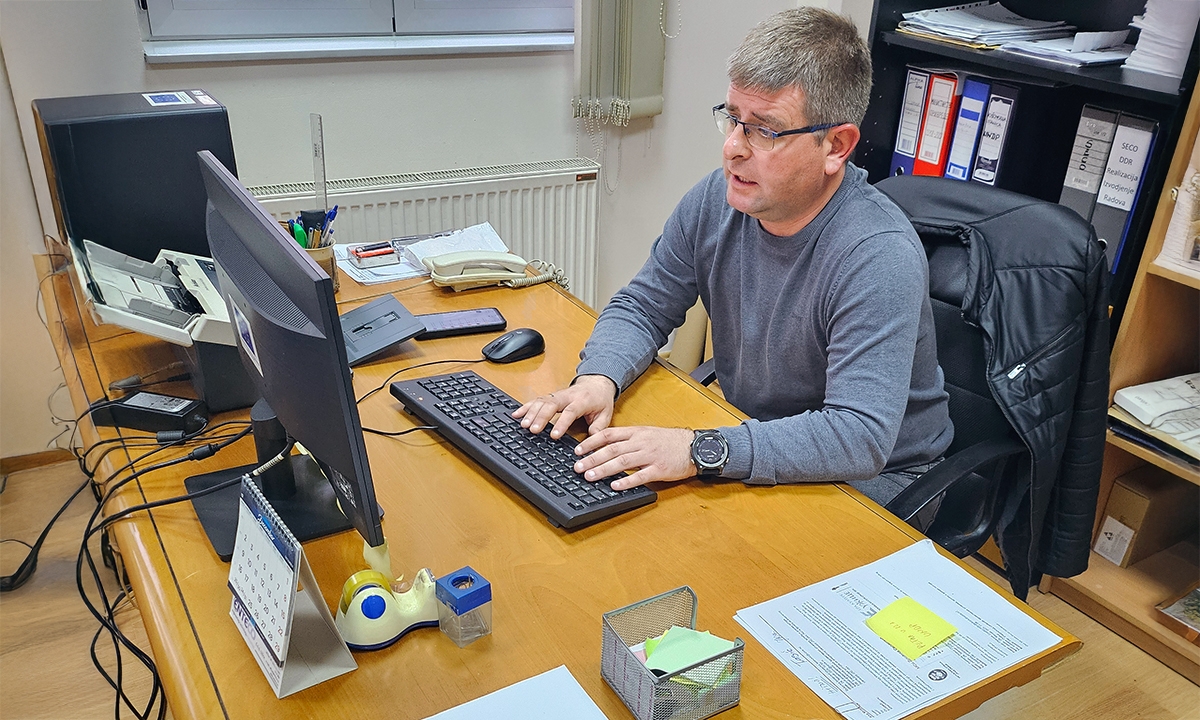Užice, 7 April 2025
Local Point of View: Užice, a City with a Clear Development Perspective
Thanks to the cooperation with the EU PRO and EU PRO Plus programmes, Užice attracted more than 1.2 million Euros of the European Union grants used to implement seven infrastructure projects with a total value of more than 2.6 million Euros. Among them, the reconstruction of the Pulmonary disease and tuberculosis treatment clinic stands out as this facility today provides health services to the entire Zlatiborski district.
We talk about the importance of these investments for the city, as well as the future plans, with Aleksandar Tasić, head of the department for project preparation and implementation at the Užice City Administration.
1. In the past ten years, Užice has implemented several infrastructure projects with the support of the European Union. How would you rate their overall contribution to local development?
EU support has contributed to local development in Užice in multiple ways. The projects addressed key areas such as education, culture, tourism and health. It is particularly important that these investments have improved facilities that have been waiting for reconstruction for decades. Those projects did not just bring new functionality—they contributed to a higher quality of life for our citizens and initiated additional development in the community.
2. How does EU support impact the long-term sustainability of local infrastructure?
The EU invests not only in construction—but in sustainable solutions. Through energy efficiency standards, social inclusion and user-tailored design, each facility gains long-term value. This is also the case with health facilities, where modernisation enables better working conditions for employees and more accessible care for patients. Sustainability is also reflected in the fact that the local self-government becomes more willing to manage these facilities in the long term, with lower maintenance costs.
3. Which projects, in your opinion, brought the most visible changes to Užice?
The reconstruction of the kindergarten in the Karan settlement, the restoration of the National Theatre, the construction of tourist infrastructure at the Old Town Fortress, but also the green transition through the installation of solar systems—all these projects are of great importance. But if one symbolises the combination of strategic vision, local commitment and European support, it is certainly the reconstruction of the Pulmonary disease and tuberculosis treatment clinic. Today, this institution provides better health care to the entire Zlatiborski district—it is a true example of transformation from the bottom.
4. Why is investment in health infrastructure important for local communities?
Because health is and remains the foundation of development. Without accessible and quality health care, we cannot keep the people staying in their hometowns nor attract new ones to come. When citizens in small and medium-sized cities have the same conditions as those living in large centres, then people feel equal and safe. Investing in health infrastructure is a direct investment in the safety, trust and survival of the community.
5. What are the next steps for Užice when it comes to infrastructure and further development?
We plan to continue investing in facilities of public importance—not only health, but also educational, cultural and sports. The focus will be on green technologies, accessibility and integration with broader development strategies. We are also working on strengthening administrative capacities for the preparation of new projects, because we want Užice to remain a leader among local self-governments when it comes to the use of EU funds.
